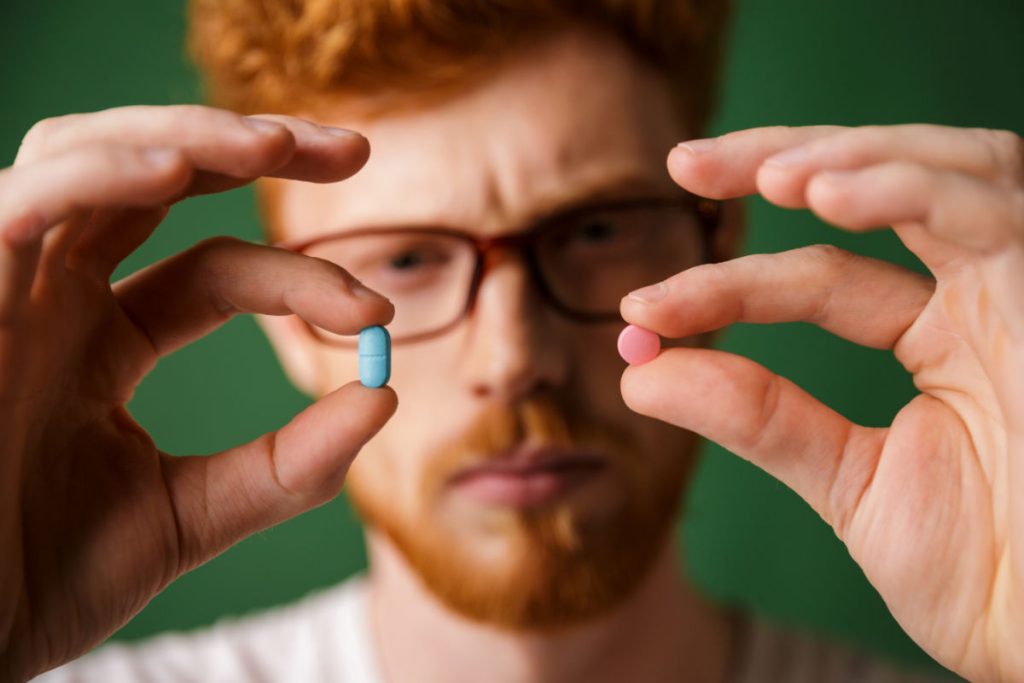
Dry eye syndrome or keratoconjunctivitis sicca is a very common eye condition affecting more than 20 million adults in the United States. It is a term used to describe dryness of the eyes sufficiently severe to cause symptoms and affect your quality of life.
Eye dryness occurs when your tears are insufficient in quantity, when your tears are not of the right quality or when your tears are not spread across the surface of your eye properly. In general, this condition can be attributed to problems with one (or more) of the following tissues: lacrimal glands, meibomian glands, conjunctiva and eyelids.
However, it can be easy to overlook the fact that dryness is a well-recognized side effect of many medications. In general, these medications affect and reduce tear production (or more specifically, production of water that constitutes the aqueous layer) from the lacrimal glands, resulting in dryness of the eyes. Below is a non-exhaustive list of common medicines and drugs that can cause dry eyes as one of their reported side effects.
| Acebutolol | Labetolol |
| Acetophenazine | Lithium |
| Albuterol | |
| Amitriptyline | Mesoridazine |
| Antazoline | Methdilazine |
| Atenolol | Methotrexate |
| Atropine | Methotrimeprazine |
| Azatadine | Methoxsalen |
| Methscopolamine | |
| Bendroflumethiazide | Methyclothiadize |
| Benzthiazide | Methylthiouracil |
| Brimonidine tartrate | Metolazone |
| Brompheniramine | Metoprolol |
| Busulfan | |
| Butaperazine | Nadolol |
| Nortriptyline | |
| Carbinoxamine | |
| Carphenazine | Oxprenolol |
| Chlorisondamine | |
| Chlorothiazide | Pentazocine |
| Chlorpheniramine | Perazine |
| Chlorpromazine | Perphenazine |
| Clemastine | Pheniramine |
| Clonidine | Pimozide |
| Pindolol | |
| Desipramine | Piperacetazine |
| Dexbrompheniramine | Polythiazide |
| Dexchlorpheniramine | Practolol |
| Diethazine | Prochlorperazine |
| Dimethindene | Promazine |
| Diphenhydramine | Promethazine |
| Diphenylpyraline | Propriomazine |
| Disopyramide | Propranolol |
| Dronabinol | Protriptyline |
| Pyrilamine | |
| Emedastine | |
| Ethopropazine | Quinethazone |
| Etretinate | |
| Scopolamine | |
| Fluphenazine | |
| Thiethylperazine | |
| Hexamethonium | Thiopropazate |
| Homatropine | Thioproperazine |
| Hydrochlorothiazide | Thioridazine |
| Hydroflumethiazide | Timolol |
| Tolterodine | |
| Imipramine | Trichlormethiazide |
| Indapamide | Trifluoperazine |
| Ipratropium bromide | Trioxsalen |
| Isotretinoin | Triprolidine |
If you are experiencing symptoms of dryness (irritation, scratchiness, blurriness, foreign body sensation, grittiness), please consult the information sheet for the medications that you are on. The dryness that you are feeling in your eyes may actually be due to those pills and tablets that you have been taking for your other ailments.
If you suspect that you may be suffering from drug-induced eye dryness, obtain a consult from your family physician. Please do not stop any of your medicines before seeking advice. Your family physician may be able to suggest alternative medicines that do not affect your eyes so much.


